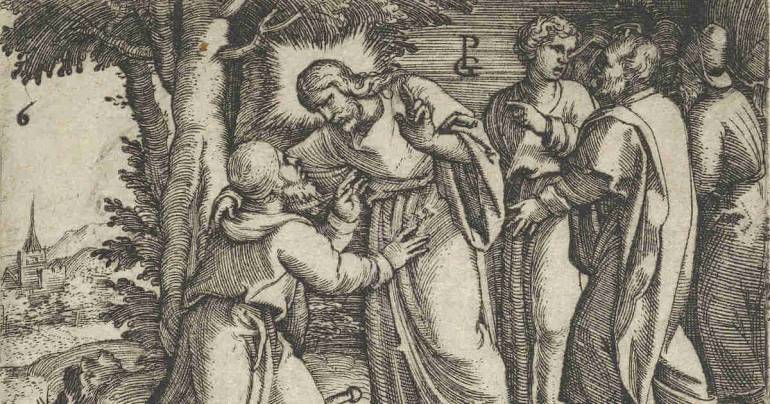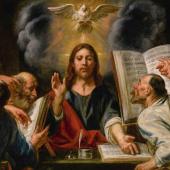Homage, Reverence and Respect

When Jesus came down from the mountain, great crowds followed him. And then a leper approached, did him homage, and said, “Lord, if you wish, you can make me clean.” Matthew 8:1–4
To do homage to another is to publicly express reverence and respect. This is what this leper did to Jesus. He “did him homage.” But the leper went even further. He also expressed his certain faith that Jesus could cure him if He wished to do so. And Jesus did desire this. Jesus stretched out His hand to touch the leper and pronounced the words, “I will do it. Be made clean.” And with that, the leper was cleansed.
The first thing to note in this passage is that Jesus “touched” the leper. This was a forbidden practice, since lepers were unclean and touching them could spread their disease. But Jesus broke the norm and touched the man, revealing to him his innate dignity.
It’s interesting to consider the question: Who paid whom a greater act of homage? Was the act of homage shown by the leper greater? Or the act of touching and cleansing the leper greater? Though we need not compare these two acts, it is helpful to reflect upon the profound fact that Jesus did show a form of homage to this unclean leper.
As was said above, to do homage to another is to publicly express reverence and respect to them. Without a doubt, Jesus did just this. He not only honored the leper by His touch and healing, but He publicly expressed His love and respect for this man through this act.
Of course, the homage we owe to God is unique. It is the homage of worship. We must bow down before Him, surrendering our lives in total abandonment and trust. We must honor Him as God and express our love accordingly. But, in addition to Jesus showing His almighty power by this miracle, He also sets for us an example of how we must treat others. Every person, because they are made in the image and likeness of God, deserves our utmost respect, and they deserve to receive that respect in a public way. We must continually seek to honor and respect others and express that honor and respect for others to see. This is especially difficult when the person we are called to show respect for is considered by others as “unclean.” The leper is only a symbol of the many types of people whom the world considers unclean and unworthy. Criminals, the poor, the confused, the sinner, the homeless, the political opponent and every other person in our world deserves our utmost respect and reverence. Doing so does not justify their sin; rather, it cuts through the surface and looks at their innate dignity.
Reflect, today, upon the act of homage done by this leper to Jesus. And then reflect upon the act of homage Jesus offers this leper by publicly confirming his innate dignity. Who in your life is represented by this leper? Who is “unclean” because of the condition of their life, the sin they commit, or the public stigma they have? Whom is God calling you to reach out and touch with love and respect, for others to see? Seek out the leper in your life and do not be afraid to imitate this holy act of homage exemplified by our Lord.
My holy Lord, You are worthy of all adoration, glory and homage. You and You alone deserve our worship. Help me to continually discover Your hidden presence in the lives of those around me. Help me, especially, to see You in the leper of our day. May my love and respect for them flow from my love for You and become an imitation of Your act of love for all. Jesus, I trust in You.
Radio Veritas Asia (RVA), a media platform of the Catholic Church, aims to share Christ. RVA started in 1969 as a continental Catholic radio station to serve Asian countries in their respective local language, thus earning the tag “the Voice of Asian Christianity.” Responding to the emerging context, RVA embraced media platforms to connect with the global Asian audience via its 21 language websites and various social media platforms.














